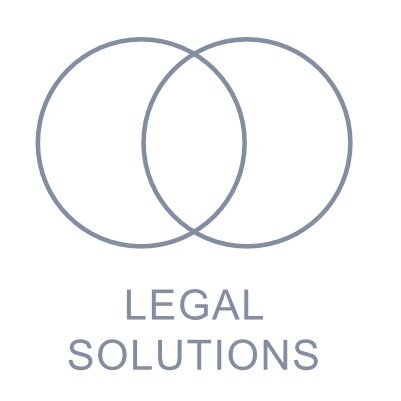Best Business Lawyers in Lesotho
Share your needs with us, get contacted by law firms.
Free. Takes 2 min.
Or refine your search by selecting a city:
List of the best lawyers in Lesotho
About Business Law in Lesotho
Business law in Lesotho is the framework that regulates the formation, operation, and termination of businesses in the country. It encompasses various legal fields including contract law, tax law, company law, and insolvency law. Lesotho's legal system is derived from Roman-Dutch law, modified by legislation and case law. It is vital for entrepreneurs and business persons to understand the country's business laws to ensure compliance and smooth operation of their business endeavors.
Why You May Need a Lawyer
Several situations may necessitate seeking legal advice in business, including:
1. Establishing a Business: Professionals can assist in selecting the appropriate business structure and navigating registration processes.
2. Contract Management: Lawyers can help draft, review, and enforce contracts to ensure your interests are protected.
3. Dispute Resolution: In cases of disagreements with employees, partners, or customers, legal assistance can prove invaluable in resolving conflicts.
4. Compliance Issues: Ensuring adherence to local tax laws, labor laws, and industry-specific regulations can prevent costly legal issues.
5. Intellectual Property: Protecting innovations, trademarks, or copyright through legal channels is critical for maintaining competitive advantage.
Local Laws Overview
Key aspects of local laws relevant to business in Lesotho include:
1. Business Licensing and Permits: Businesses need to obtain the appropriate licenses and permits, ensuring compliance with the Ministry of Trade and Industry.
2. Taxation: Understanding the tax structures, such as income tax and VAT, is necessary for compliance with the Lesotho Revenue Authority.
3. Employment Law: Adhering to regulations governing wages, working conditions, and employee rights as outlined in the Labour Code Order, 1992.
4. Company Law: The Companies Act 2011 governs company formation, management, and dissolution.
5. Foreign Investment: The Legal Framework for the Promotion and Protection of Investments outlines the procedures and protections available to foreign investors.
Frequently Asked Questions
What is the process for starting a business in Lesotho?
Starting a business involves registering with the Companies Registry, obtaining necessary licenses, and compliance with tax registration with the Lesotho Revenue Authority.
What types of business entities are available in Lesotho?
Common types are sole proprietorships, partnerships, and companies (private and public), with distinct legal and tax implications for each.
How can I protect my business idea or product in Lesotho?
Through registering your trademark, patent, or copyright with the Office of the Registrar General to ensure intellectual property protection.
What are the main tax obligations for businesses in Lesotho?
Businesses must comply with corporate income tax and VAT requirements, as well as payroll taxes for employees.
How are labor disputes resolved?
Labor disputes may be resolved through negotiation, mediation, or adjudication at the Labour Court, depending on the nature of the dispute.
What support is there for foreign investors?
Lesotho offers investment promotion and protection through incentives and bilateral agreements to encourage foreign investment.
Is it necessary to hire a local lawyer for a foreign business?
While not mandatory, hiring a local lawyer is recommended for understanding and navigating the local business landscape and legal requirements.
How do I handle a breach of contract?
Seek legal advice immediately to address breaches either through negotiation or, if necessary, litigation.
Are there special considerations for businesses in specific industries?
Yes, industries such as mining, telecommunications, and banking have specific regulations requiring industry-specific expertise.
What are the consequences of not adhering to business laws?
Non-compliance can result in fines, legal disputes, operational shutdowns, and reputational damage.
Additional Resources
1. Ministry of Trade and Industry: Guides on commercial and trade activities.
2. Lesotho Revenue Authority: Information on taxation and compliance.
3. Basotho Enterprises Development Corporation (BEDCO): Support for business development.
4. Investment Promotion Agency: Assistance for foreign investors.
5. Legal Aid Clinic: Access to affordable legal assistance.
Next Steps
If you require legal assistance for business in Lesotho, consider the following steps:
1. Identify your specific legal needs related to your business venture.
2. Research and consult with a qualified attorney experienced in Lesotho business law.
3. Prepare necessary documentation related to your business, such as registration papers and financial records.
4. Discuss your case with the lawyer and follow through with their advice to ensure compliance and safeguard your business interests.
Lawzana helps you find the best lawyers and law firms in Lesotho through a curated and pre-screened list of qualified legal professionals. Our platform offers rankings and detailed profiles of attorneys and law firms, allowing you to compare based on practice areas, including Business, experience, and client feedback.
Each profile includes a description of the firm's areas of practice, client reviews, team members and partners, year of establishment, spoken languages, office locations, contact information, social media presence, and any published articles or resources. Most firms on our platform speak English and are experienced in both local and international legal matters.
Get a quote from top-rated law firms in Lesotho — quickly, securely, and without unnecessary hassle.
Disclaimer:
The information provided on this page is for general informational purposes only and does not constitute legal advice. While we strive to ensure the accuracy and relevance of the content, legal information may change over time, and interpretations of the law can vary. You should always consult with a qualified legal professional for advice specific to your situation.
We disclaim all liability for actions taken or not taken based on the content of this page. If you believe any information is incorrect or outdated, please contact us, and we will review and update it where appropriate.
Browse business law firms by service in Lesotho
Lesotho Attorneys in related practice areas.
Browse business law firms by city in Lesotho
Refine your search by selecting a city.












